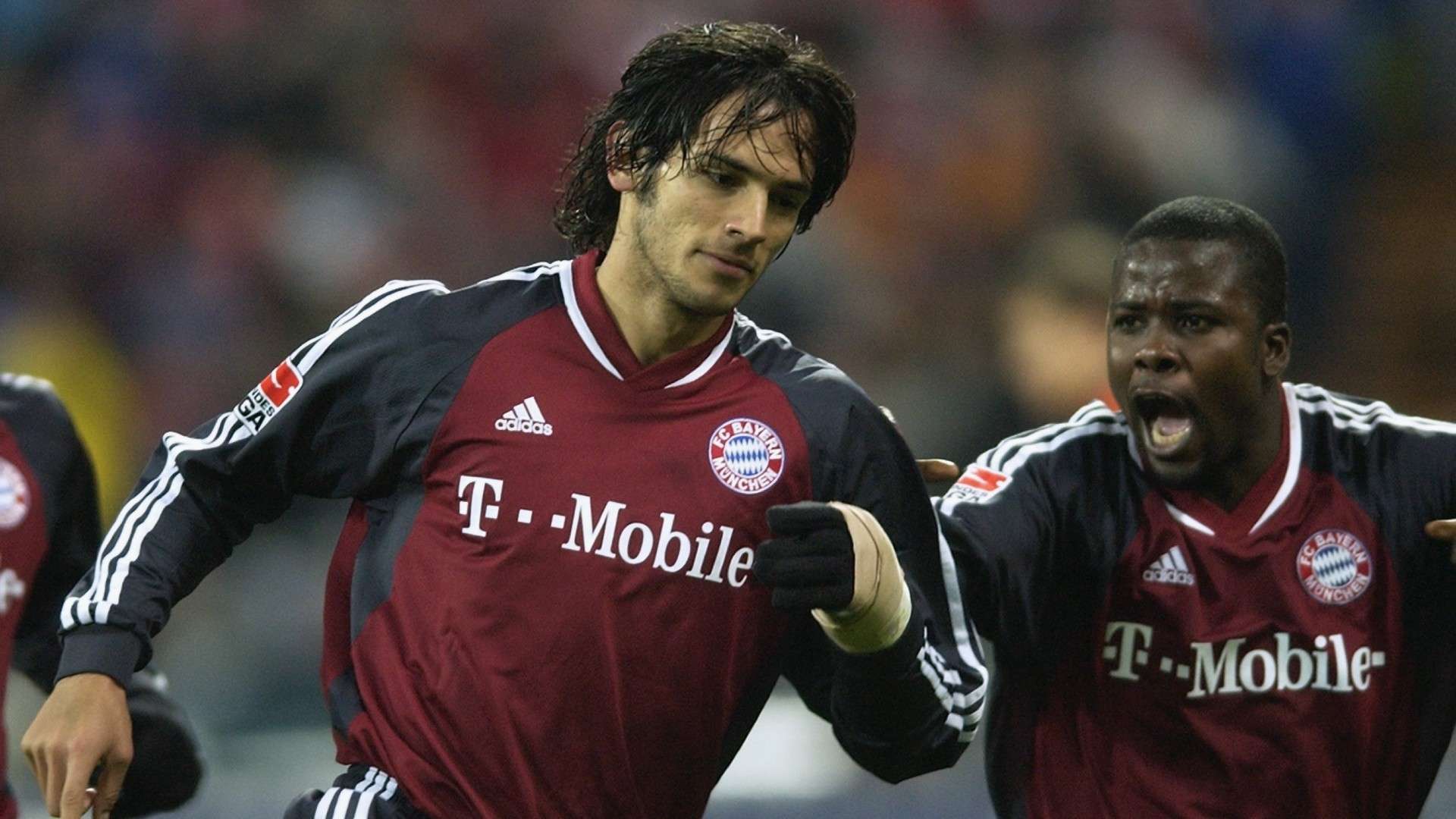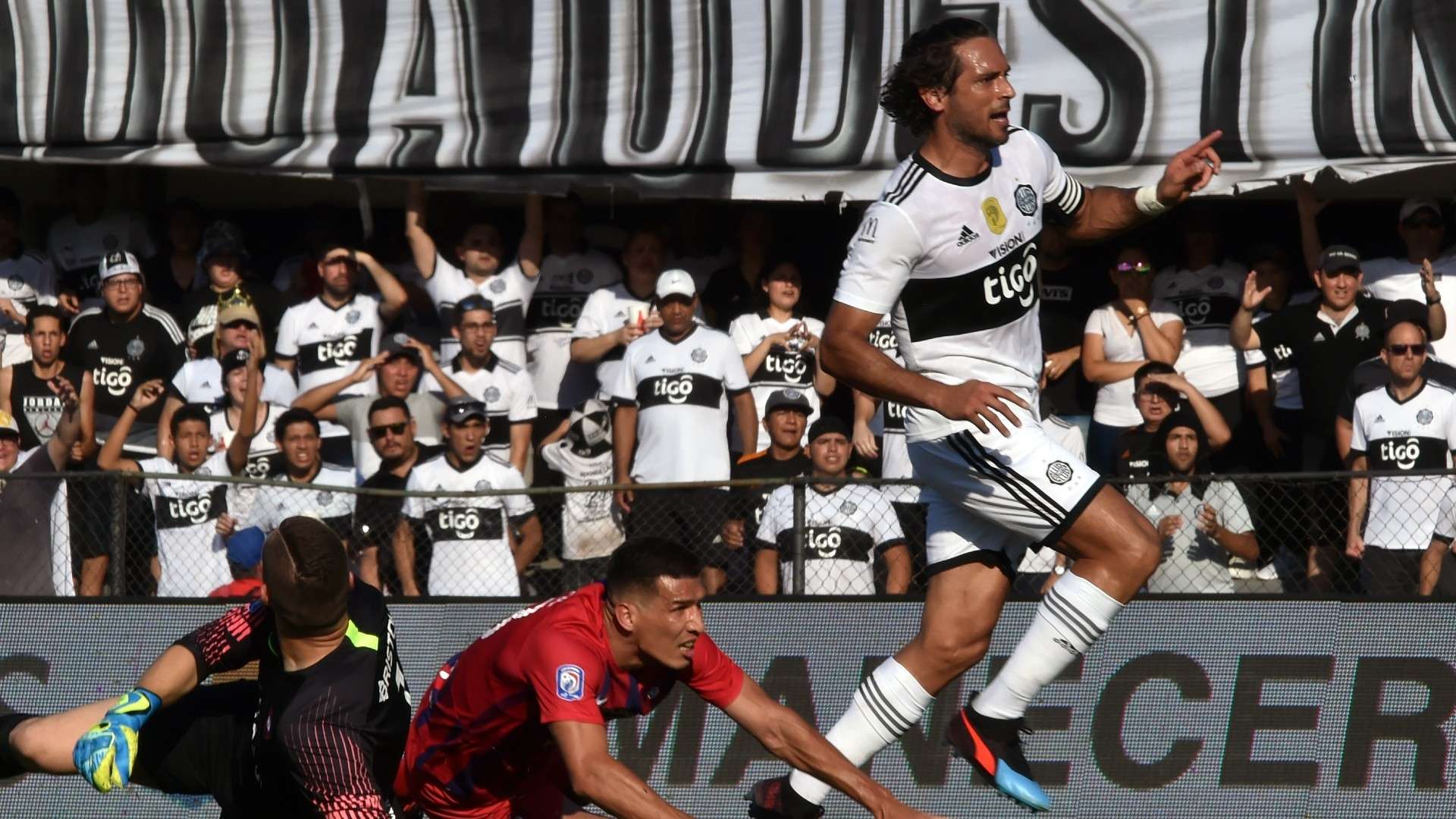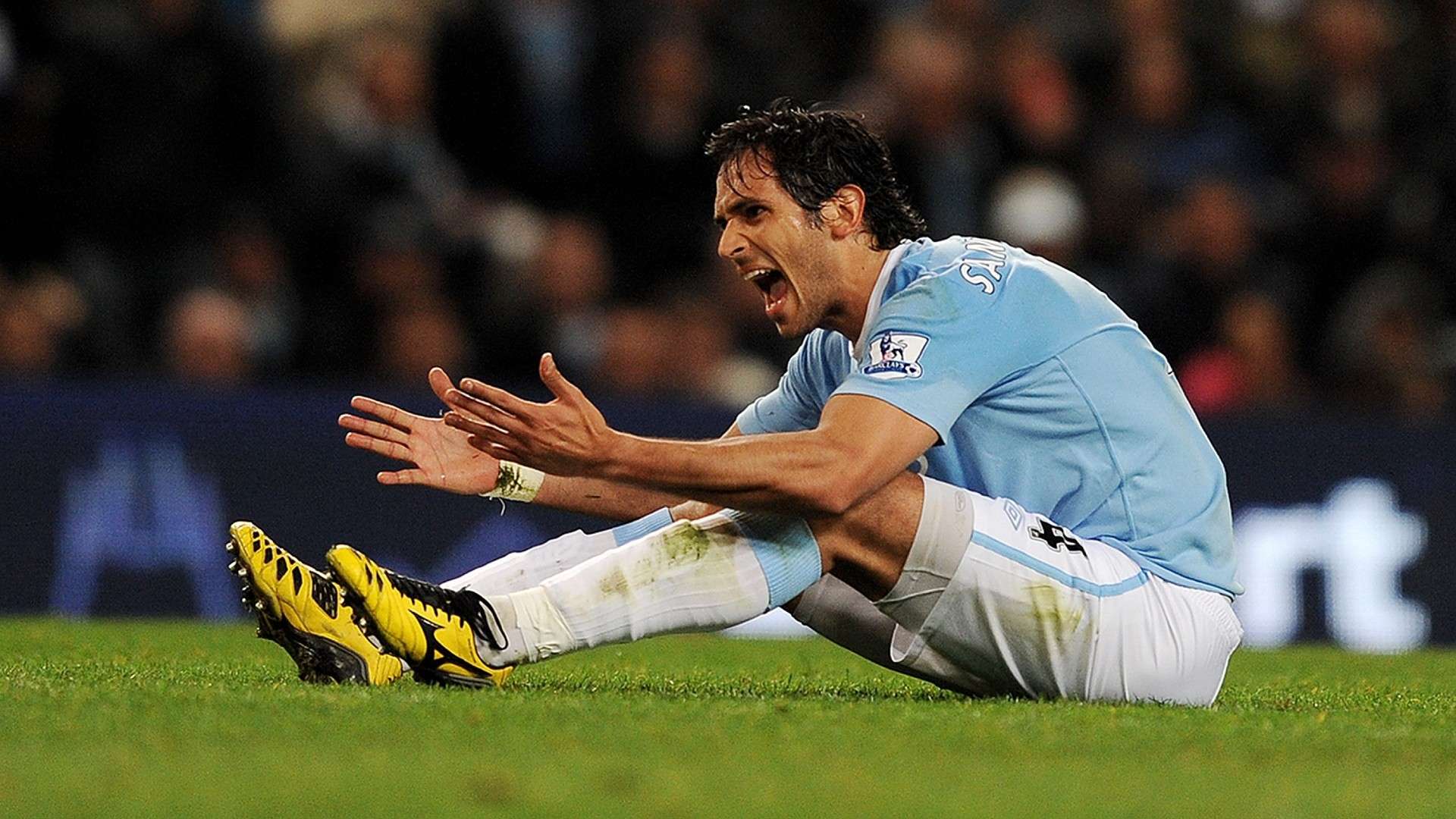While Santa may be on the mind of many football fans both young and old this Christmas, over in Paraguay, it is a name synonymous with grabbing goals, rather than giving presents.
Roque Santa Cruz has enjoyed an almost-25-year career playing at the top level, and even at the age of 40, he has no intention of stopping.
“I said this was going to be my last dance, but at the club," Santa Cruz said after announcing that he would be leaving Paraguayan outfit Olimpia last week. "I’m going to carry on playing, but not now at Olimpia."
Santa Cruz is a fine illustration of how a player can continue to have a long and prosperous career even after a big Premier League move goes south, and he fades from mainstream public perception among European supporters.
His final game for Olimpia, the final of the Copa Paraguay, saw opposition goalkeeper, Jean Fernandes of Cerro Porteno, sent off before a ball was even kicked for making a cut-throat gesture at the fans, but it still represented another landmark moment for Santa Cruz.
Next Match
Helped by this bizarre incident, Olimpia won 3-1 to send Santa Cruz away with a trophy as he enters the fifth decade of his life.
Santa Cruz's place in Paraguayan football folklore is undeniable. He is his country's record goal scorer with more than a century of caps to his name, and in the opinions of many in the South American nation, he is their greatest ever footballer.
At club level, it is a more complicated tale of injuries and poor transfers, interspersed with moments of genuine quality and striking prowess.
Santa Cruz started his career with Olimpia and was immediately tipped for stardom. He was promoted to the first team at 15, made his senior debut at 16, and made his senior Paraguay debut at 17, scoring three goals in as many matches at the 1999 Copa America.
This attracted the interest of Bayern Munich, who paid a record fee for a player at a Paraguayan club - €5 million - to bring him to Europe.
A huge move for a young man, but as Santa Cruz tells it, he was very used to unusual circumstances at club level through his dealings with Olimpia's president, Osvaldo Dominguez Dibb.
 Getty
Getty"I remember that we once lost an important regional derby. The president entered the sleeping room where we all spent the night ahead of games and unloaded his gun in the ceiling," he told Sport Bild in 2011.
"That wasn't all though. When a player had put in a bad performance, he just strolled up to their car and urinated inside it while they were standing right next to him!
"The president always wanted us to come up to him to pick up our monthly wages. If you hadn't played well that month, he stood up and asked: 'What is it you want?' while tapping a machine gun on his desk.
"That always prompted players to wait for their money until they had put in some better performances again."
Santa Cruz was also much more suited to the rough and tumble of European football than many of the callow South American teenagers who make the perilous voyage across the ocean. A wispy winger to be bullied by brutish defenders he is not.
Standing at six foot four, Santa Cruz could handle himself as a striker, although he was not just about physicality. Comfortable with both feet and using them to dribble, he also possessed a good sense for hold-up play and positioning, along with surprising pace for a taller player.
The issues, however, came with putting the ball in the net - not once during eight seasons with Bayern did he reach double figures. His best return was in his debut campaign, when he scored nine goals in 48 matches. Not every forward can be Robert Lewandowski, but for a team as domestically dominant as Bayern, this was quite a disappointing return.
His time in Munich also started the theme of injuries disrupting his career - a ruptured cruciate ligament caused him to miss most of the 2005-06 campaign, causing him to fall behind Miroslav Klose and Luca Toni in the pecking order.
Nevertheless, Santa Cruz acquired quite the trophy haul in Germany - the Champions League in 2001, and five Bundesliga titles - meaning he looked quite the snip when Premier League club Blackburn Rovers signed him in summer 2007 for just £3.5m.
His first year at Blackburn was his best in Europe, scoring 23 goals in 43 games across all competitions, finishing fourth in the Premier League scorer charts and firing Rovers to seventh place.
His second campaign was less stellar as injuries started to mount - in two years at Blackburn, he was sidelined at various times with a groin strain, a sprained ankle, an Achilles problem, a shin injury, a calf muscle strain, as well as two knee injuries and a problem with his hamstring.
 Getty
GettyDespite all this, his former Blackburn manager, Mark Hughes, paid £18m to bring Santa Cruz to Manchester City in the summer of 2009 as part of the club's wild first full summer of spending after the Abu Dhabi takeover that also saw Carlos Tevez, Emmanuel Adebayor, Joleon Lescott, Gareth Barry and Kolo Toure arrive at the Etihad Stadium.
While some of those splashy signings worked out well for City, Santa Cruz fell into the expensive nightmare category now being used to scare over-excited Newcastle supporters.
It was, in theory, one of City's better thought out acquisitions that summer - the powerful target man to supplement the wizarding skills of Robinho and Stephen Ireland. In practice, less so.
Santa Cruz signed for City while recovering from a knee injury and struggled to maintain fitness throughout 2009-10, completing 90 minutes only three times that campaign.
Midway through the season, Hughes was sacked, and at the campaign's end, new manager Roberto Mancini made it clear Santa Cruz was not in his plans.
The Paraguayan, however, attempted to stay and fight for his place, telling GOAL at the time: "It's about working hard to get opportunities to impress. Every time I step onto the pitch I want to score, because goals are the best argument there is."
Mancini was not convinced, and Santa Cruz instead was sent on a series of loans over the next two-and-a-half years - back to Blackburn, then to Spain with Real Betis and Malaga, before joining the latter on a permanent deal in summer 2013.
After a stint in Mexico with Cruz Azul, he made the pilgrimage home to Olimpia, where since 2016 he has helped them to two league titles and the recent cup triumph.
In Paraguayan football, Santa Cruz's legendary status is assured - he played an important role in their qualification for four successive World Cups between 1998 and 2010, reaching their first quarter-final in the latter, as well as the final of the 2011 Copa America. Whether he retires now or carries on towards his 41st birthday, his legacy is assured.
In European club football, Santa Cruz is more of a footnote, an oddity, a 'remember that guy' figure. Yet when it came to goals and trophies, when he was fit, this Santa would usually deliver.






.png?auto=webp&format=pjpg&width=640&quality=60)
